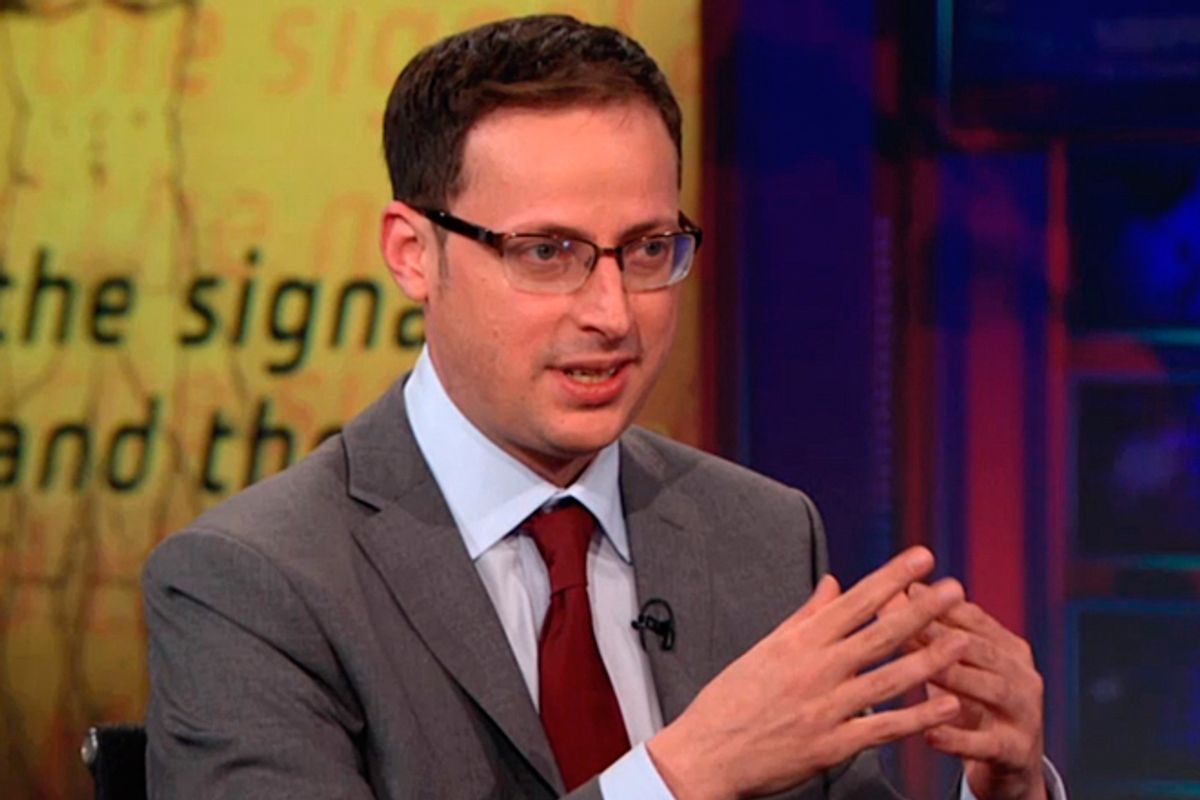Nate Silver took to Reddit on Tuesday and invited its denizens to "ask [him] anything." The online Q&A revealed a little of the man behind the "wizard."
Silver admitted he is sometimes tempted by, but wouldn't act on, the desire to use his prediction methods to profit from election betting markets (which are heavily influenced by his predictions):
Tempted, yes, but sometimes resisting temptation is a good thing.
He explained that he would like to make his methodology more open to readers of his FiveThirtyEight NYT blog:
I’d certainly like to aim to increase the level of disclosure at 538 going forward. Sometimes what happens is that I have best intentions to write a super detailed, 5000-word methodology post, and then some senate candidate does or says something stupid, and I get caught up in the news cycle and it gets forgotten about. Which is a pretty lame excuse, I know.
He told questioners that his statistical analysis is particularly well suited to certain aspects of politics -- notably presidential elections -- but cannot be used to predict the outcome of many political debates, such as gun control. When asked if he could predict whether gun control would make America safer or not, he answered:
It’s a tricky problem, statistically. The issue is that while gun ownership rates could plausibly be a cause of fatal crimes and accidents, it can also be a reaction to it, i.e. people purchase guns because they feel unsafe. I’m not saying that the issue is intrinsically inscrutable. But it’s something that more requires a PhD-thesis-level treatment than a blog post to really add much insight, I think.
Silver admitted that in the run-up to the election, when pundits were questioning his predictions, he would less frequently stress the uncertainty of his models:
At some point in the last few weeks of the election, I guess I decided to lean into the upside outcome a little bit in terms of pushing back at the pundits in my public appearances -- as opposed to emphasizing the uncertainty in the model, as I had for most of the year. (Nothing about the model design itself changed -- just how I tended to talk about it.)
Stupid poker analogy: part of playing well is in maximizing the amount of value you get from a hand in the event that things go well, in addition to mitigating your losses if they don't.
And he also noted that politics involves more delusion than sports. When asked which is more frustrating to analyze, he responded:
Politics. I don’t think it's close. Between the pundits and the partisans, you’re dealing with a lot of very delusional people. And sports provides for much more frequent reality checks. In politics, you can go on being delusional for years at a time.



Shares